Every January, the World Economic Forum takes place in Davos. Despite political and business leaders discussing global issues and threats through the lens of free trade and capitalist values, the issue of climate change remains highly relevant. This year is no exception*. The theme was “Collaborating for the Intelligent Age,” with one of the five official themes focused on “Safeguarding the Planet.”

About 3,000 business leaders, officials, scientists, analysts, and journalists from more than 130 countries participated in Davos 2025. A total of 27 sessions related to sustainable development were held during the event. Among other topics, there was a discussion on the need to create new technological solutions for early warnings about natural disasters, which are becoming more frequent each year due to global warming.

In December 2024, the World Economic Forum published a report titled “The Cost of Inaction,” which offered an important opportunity to reflect on both the future of the planet and the future of corporations before Davos 2025. According to the report, the damage caused by climate change has already exceeded $3.6 trillion since 2000 and could lead to a decline in global GDP by as much as 22% cumulatively by 2100. The concentration of carbon dioxide in the Earth’s atmosphere reached its highest level in the summer of 2024. Average global temperatures have increased by approximately 1.2°C. According to the World Meteorological Organization, the frequency of natural disasters—such as extreme heat, floods, droughts, storms, and wildfires—has increased fivefold over the past 50 years. This has significantly impacted business operations. Business losses are mounting, with climate-related damages rising to over $1 trillion between 2020 and 2024. Experts believe that investing 2-3% of global GDP in mitigation and adaptation measures could have prevented a 10-15% loss of GDP over the course of this century.
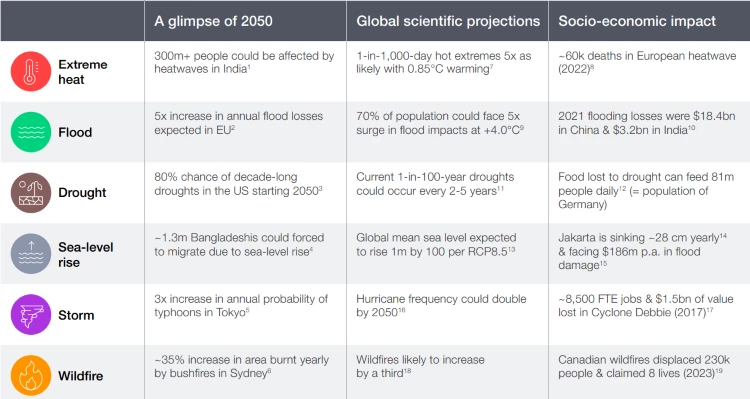
Source: The Cost of Inaction
The use of green technologies will provide substantial growth and competitive advantages, as the green technology market is expected to reach $14 trillion by 2030. Companies that can capitalize on emerging adaptation opportunities will benefit.
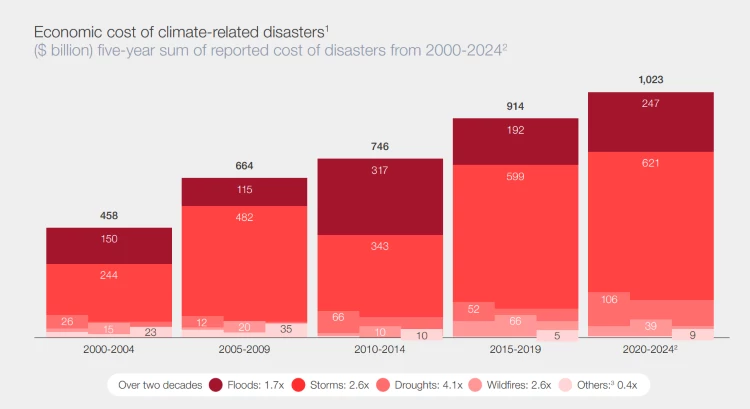
Source: The Cost of Inaction
It is difficult to categorize the outcomes of the forum as entirely optimistic or pessimistic. On the one hand, the news of the U.S. withdrawal from the United Nations Framework Convention on Climate Change (UNFCCC) pointed to negative trends in the fight against global warming. Newly elected President Donald Trump withdrew from the climate accords for the second time. His stance on environmental issues has remained unchanged: he believes that government regulation in the environmental sector slows down the development of the free market and hinders GDP growth. Meanwhile, leaders of developing countries continue to insist that wealthier nations should shoulder the responsibility for global environmental conservation.
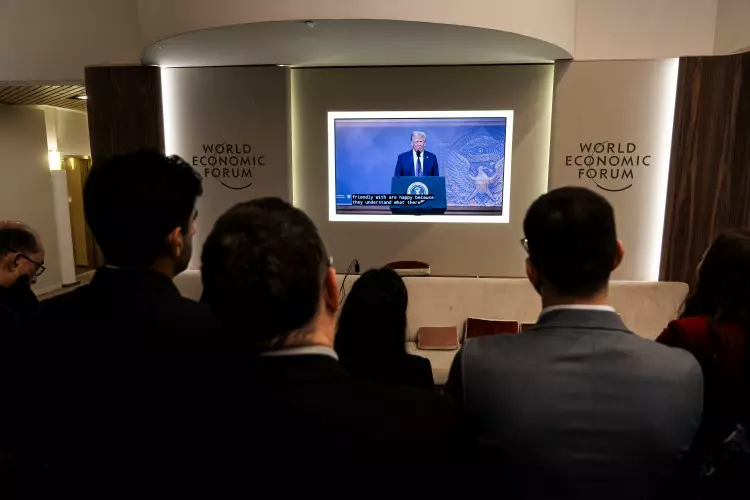
On the other hand, forum participants reaffirmed their commitment to addressing climate change. This was evident not only from the numerous environmental panels—reportedly nearly three dozen—but also from meaningful statements made during the event. For instance, UNFCCC Executive Secretary Simon Stiell and European Commission President Ursula von der Leyen made notable remarks. Amazon announced that it would maintain its net-zero goals, and representatives of the IT industry emphasized the crucial role of big data and digital technologies in helping businesses adapt to climate change. Additionally, billionaire Michael Bloomberg expressed his support for the climate agreement by personally committing to help compensate for Trump’s refusal to follow this path.
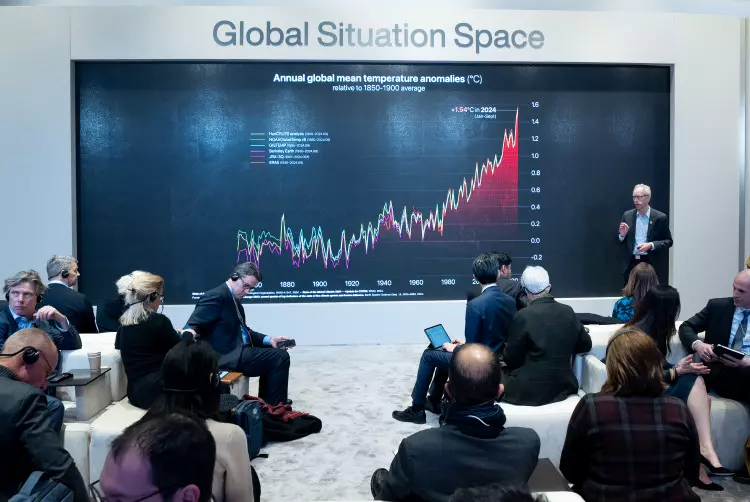
The Economic Forum may not be the ideal venue for radical solutions to environmental problems, and significant changes may not be expected from this event. Nevertheless, the forum plays an important role in convincing global business and political leaders of the importance and benefits of adapting to climate change.
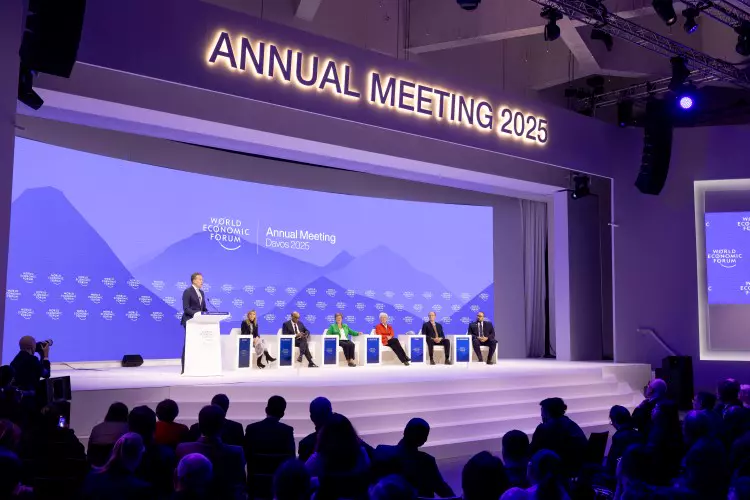
*All photos in the publication have been retrieved from World Economic Forum Annual Meeting 2025 – AM25 Impressions 24


